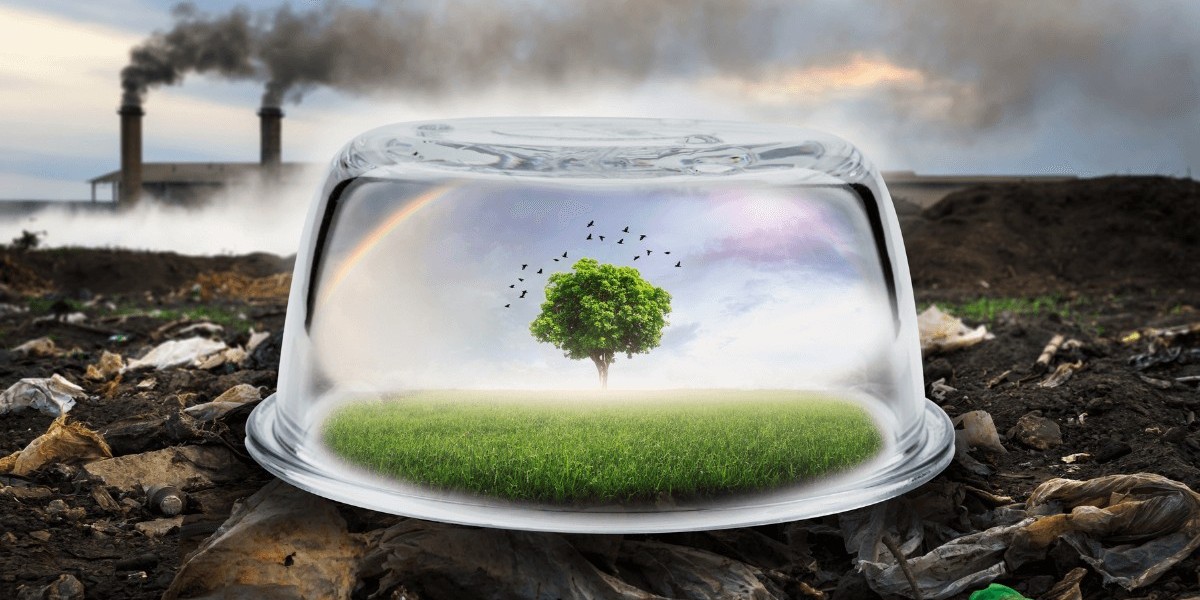Malaysia, known for its diverse ecosystems and magnificent landscapes, is also grappling with the detrimental effects of environmental pollution. The country's rapid industrialization and economic growth have given rise to various pollution challenges that demand immediate attention and effective strategies for mitigation.
Air pollution is one of the major concerns in Malaysia. The significant sources of air pollution include industrial emissions, vehicle emissions, open burning, and the burning of fossil fuels. These pollutants, such as particulate matter, nitrogen dioxide, and volatile organic compounds, pose serious threats to human health, ecosystems, and the economy.
Environmental consultants in Malaysia play a crucial role in addressing these pollution issues. Equipped with expertise and knowledge in environmental science, these consultants provide valuable assessments, recommendations, and solutions to mitigate pollution. They work closely with industries, government agencies, and communities to develop sustainable practices and policies.
To combat environmental pollution effectively, a comprehensive approach is required. This involves implementing stringent regulations, promoting cleaner production techniques, and adopting renewable energy sources. It also involves raising awareness among the public and encouraging individual contributions towards a cleaner and greener Malaysia.
In the following sections, we will delve deeper into the specific causes and impacts of air pollution in Malaysia. We will also explore the significant role of environmental consultants in mitigating pollution and propose strategies to control pollution and promote sustainable practices.
Air Pollution in Malaysia: Causes and Impacts
Air pollution is a growing concern in Malaysia, with its detrimental effects on human health, ecosystems, and the economy. Understanding the sources and causes of air pollution is essential for developing effective strategies to mitigate its impacts.
Sources and Causes of Air Pollution
- Industrial Emissions:Malaysia's rapid industrialization has led to increased emissions from manufacturing plants, power plants, and refineries. These emissions release pollutants such as sulfur dioxide (SO2), nitrogen oxides (NOx), and particulate matter (PM).
- Transportation:The transportation sector, including road vehicles and aircraft, contributes significantly to air pollution in urban areas. Vehicle exhaust emissions, including carbon monoxide (CO), nitrogen dioxide (NO2), and volatile organic compounds (VOCs), contribute to poor air quality.
- Open Burning:Agricultural practices, land clearing, and the burning of waste contribute to high levels of air pollution, especially during the dry season. These activities release pollutants such as carbon monoxide (CO), nitrogen oxides (NOx), and fine particulate matter (PM2.5).
- Forest Fires:Forest fires, both natural and man-made, release large quantities of smoke, ash, and pollutants into the air. These fires contribute to air pollution, particularly during the dry season.
Impacts of Air Pollution
- Human Health:Exposure to air pollution can lead to various health problems, including respiratory issues, cardiovascular diseases, and lung cancer. Vulnerable groups such as children, the elderly, and individuals with pre-existing respiratory conditions are particularly at risk.
- Ecosystems:Air pollution can have a detrimental impact on plants, animals, and ecosystems. Acid rain, a result of air pollution, damages vegetation and aquatic ecosystems. Pollutants can also affect the reproductive and respiratory functions of animals.
- Economic Costs:The economic costs of air pollution are significant. Health care expenses related to air pollution-related illnesses, reduced productivity, and damage to crops and infrastructure all contribute to economic losses.
It is crucial for the Malaysian government, industries, and the public to work together in implementing measures to reduce air pollution. By addressing the sources and causes of pollution and adopting cleaner technologies and sustainable practices, Malaysia can improve air quality and protect the well-being of its people and environment.
Role of Environmental Consultants in Mitigating Pollution
Expert environmental consultants play a crucial role in mitigating pollution in Malaysia by providing their expertise, conducting assessments, and offering valuable recommendations. These professionals are equipped with the necessary knowledge and skills to address environmental challenges and ensure sustainable practices. Here are some key ways in which environmental consultants contribute to pollution mitigation:
Expertise and Assessments
Environmental consultants possess a deep understanding of the various factors contributing to pollution and its impacts. They utilize their expertise to identify the sources of contamination, assess the extent of the pollution, and evaluate its effects on the environment, human health, and ecosystems. Through rigorous analysis and data collection, they provide a comprehensive overview of the pollution scenario in Malaysia.
Recommendations for Pollution Control
Based on their assessments, environmental consultants develop effective strategies and recommendations to control and mitigate pollution. They identify the most suitable control measures and techniques that can be implemented to reduce pollution levels. These recommendations may include adopting cleaner production methods, implementing pollution prevention measures, and promoting sustainable practices across industries.
Compliance with Environmental Regulations
Environmental consultants help businesses and organizations adhere to environmental regulations and standards. They assist in ensuring compliance with mandatory environmental requirements, such as emission limits, waste management regulations, and pollution control measures. By guiding companies through the compliance process, consultants contribute to the reduction of pollution and the overall improvement of environmental performance.
Advancing Green Technologies
Environmental consultants actively promote the adoption of green technologies and practices to minimize pollution. They keep abreast of the latest advancements in clean energy, renewable resources, and sustainable manufacturing processes. By encouraging the use of environmentally friendly technologies, consultants enable businesses to reduce their carbon footprint and contribute to an overall cleaner and greener Malaysia.
Enhancing Stakeholder Engagement
Environmental consultants facilitate stakeholder engagement and foster collaboration among the Malaysian government, industries, and the public. They bring together various stakeholders to develop a shared understanding of the challenges posed by pollution and work towards common goals. By fostering communication and cooperation, consultants create a supportive environment for pollution mitigation efforts.
Strategies for Controlling Industrial Risks
Industrial activities in Malaysia contribute significantly to environmental pollution. To address this issue, environmental consultants recommend implementing various strategies aimed at reducing industrial risks and enhancing environmental performance. These strategies cover crucial aspects such as risk assessments, pollution prevention, and the adoption of robust environmental management systems.
Risk Assessments
One of the primary steps in controlling industrial risks is conducting comprehensive risk assessments. Environmental consultants assess the potential hazards associated with industrial processes and identify the critical areas that require attention. By understanding the risks involved, industries can develop effective mitigation plans to minimize adverse impacts on the environment. These assessments also help identify potential environmental hazards, allowing for proactive preventive measures.
Pollution Prevention
Pollution prevention is a key focus area for mitigating industrial risks. Environmental consultants emphasize implementing cleaner production practices and technologies to reduce the release of pollutants into the environment. This involves optimizing production processes, adopting greener alternatives, and promoting the efficient use of resources. By minimizing waste generation and pollutant emissions, industries can achieve significant environmental improvements while also enhancing their operational efficiency.
Environmental Management Systems
An effective environmental management system (EMS) plays a vital role in controlling industrial risks and ensuring sustainable operations. Environmental consultants recommend implementing internationally recognized standards such as ISO 14001 to establish robust EMS frameworks. These systems enable organizations to identify and manage environmental impacts, set environmental objectives, and continuously improve their environmental performance. By integrating environmental considerations into their daily operations, industries can minimize risks, enhance compliance, and demonstrate their commitment to sustainability.
Employee Training and Awareness
Creating a culture of environmental responsibility is crucial for controlling industrial risks. Environmental consultants emphasize the importance of employee training and awareness programs to ensure that workers understand their roles in pollution prevention and risk management. By providing comprehensive training and fostering environmental consciousness among employees, industries can minimize human errors, enhance safety practices, and promote a proactive approach towards environmental stewardship.
Collaboration and Industry Initiatives
Collaboration among industries, government agencies, and environmental consultants is essential for effective risk control. Environmental consultants actively engage with relevant stakeholders to develop industry-wide initiatives and best practices. By sharing expertise, experiences, and success stories, industries can learn from one another and collectively address environmental challenges. This collaborative approach fosters innovation, facilitates the adoption of sustainable practices, and drives continuous improvement across sectors.
Green Technology and its Significance in Pollution Mitigation
Green technology, also known as sustainable technology, is playing a crucial role in mitigating environmental pollution and promoting sustainability in Malaysia. By harnessing renewable energy sources and adopting eco-friendly practices, green technology offers numerous environmental benefits and helps to combat the adverse effects of pollution.
Environmental Significance of Green Technology
One of the primary reasons why green technology is gaining prominence is its ability to significantly reduce carbon emissions. Malaysia, like many other countries, is heavily reliant on fossil fuels for its energy needs. This reliance contributes to the country's high carbon footprint and exacerbates environmental pollution. However, by promoting the use of renewable energy sources such as solar, wind, and hydropower, green technology helps to decrease dependence on non-renewable energy sources and reduce carbon emissions.
Furthermore, green technology embraces cleaner production methods that minimize waste generation and pollution from industrial processes. For instance, the adoption of cleaner manufacturing practices and the use of more environmentally friendly fuels can greatly reduce harmful emissions and pollutants released into the air and water. This not only improves the environmental performance of industries but also enhances the overall quality of the environment.
Benefits of Green Technology
In addition to its environmental significance, green technology also offers a range of benefits for both businesses and society as a whole. Embracing green technology can lead to cost savings by increasing energy efficiency and reducing resource consumption. Companies that implement energy-efficient technologies and practices can experience significant long-term savings on their operational costs.
Moreover, green technology spurs innovation and creates new job opportunities. As Malaysia strives to transition to a low-carbon economy, the demand for skilled professionals in renewable energy, sustainable design, and environmental management is on the rise. This not only enhances economic growth but also provides avenues for sustainable development and increased employment opportunities.
Promoting Sustainability in Malaysia
The Malaysian government recognizes the importance of promoting green technology to mitigate pollution and achieve sustainability goals. It has implemented various policies and initiatives to incentivize the adoption of green technologies, including financial incentives for renewable energy projects and the establishment of green technology parks. These efforts aim to encourage businesses and individuals to embrace sustainable practices and reduce their environmental impact.
Government Policies and Recommendations
Government policies and recommendations play a crucial role in addressing pollution issues and achieving environmental goals in Malaysia. With the increasing concern for environmental degradation and the need for sustainable development, the Malaysian government has implemented a range of measures to mitigate pollution and promote eco-friendly practices.
One key policy is the National Policy on the Environment (NPE), which provides a comprehensive framework for environmental protection and management. This policy sets the direction for sustainable development and enforces regulatory measures to control pollution in various sectors. It focuses on promoting cleaner production processes, reducing waste generation, and improving environmental performance in industries.
To tackle air pollution, the government has introduced the Air Pollution Index (API) that measures the ambient air quality on a daily basis. This allows authorities to monitor pollution levels and provide timely warnings to the public. In addition, the Environmental Quality Act (EQA) sets standards and regulations for pollutants in the air, ensuring that industries adhere to emission limits and take necessary measures to reduce their environmental impact.
Another important aspect of government recommendations is the promotion of renewable energy sources. The government recognizes the importance of transitioning from fossil fuels to renewable energy to reduce carbon emissions and combat climate change. In this regard, initiatives such as the Feed-in Tariff (FiT) program have been implemented to incentivize the generation of renewable energy. This program provides long-term agreements and favorable prices for renewable energy producers, encouraging the widespread use of solar, wind, and hydroelectric power.
Furthermore, the government emphasizes stakeholder engagement and collaboration in addressing pollution issues. Through partnerships with industries, non-governmental organizations (NGOs), and the public, the Malaysian government works towards finding sustainable solutions and raising awareness about pollution prevention. This collaborative approach ensures that diverse perspectives are considered, fostering a sense of shared responsibility and encouraging the implementation of appropriate measures.
Despite these positive developments, challenges still exist in the effective implementation of pollution control measures. Limited government capacity, federal-state friction, and population growth continue to pose hurdles in achieving sustainable environmental goals. Addressing these challenges requires continuous improvement, policy refinement, and ongoing commitment from all stakeholders.
Stakeholder Engagement and Collaboration
Effective mitigation of environmental pollution in Malaysia requires the active engagement and collaboration of various stakeholders, including the Malaysian government, industries, and the public. By working together, these stakeholders can contribute to the development and implementation of sustainable solutions. Here are some key aspects of stakeholder engagement and collaboration in pollution mitigation:
Government Involvement and Support
The Malaysian government plays a crucial role in driving pollution mitigation efforts. It is responsible for formulating and implementing policies that promote environmental sustainability. By enacting and enforcing regulations, the government can ensure that industries comply with pollution control measures and adopt cleaner production methods. Additionally, government agencies can provide financial incentives and support for businesses to implement eco-friendly practices.
Industry Cooperation
Industries have a significant impact on environmental pollution, especially those involved in manufacturing and heavy industries. These sectors must actively participate in pollution mitigation efforts by implementing cleaner production processes, adopting renewable energy sources, and reducing their carbon emission intensity. By embracing sustainable practices and investing in green technologies, industries can contribute to reducing pollution and achieving long-term environmental goals.
Public Awareness and Participation
The public's active involvement is imperative for successful pollution mitigation. Raising awareness among individuals about the environmental consequences of pollution and encouraging responsible practices can lead to positive behavioral changes. Educational campaigns, community initiatives, and grassroots movements can play a vital role in fostering a sense of responsibility and encouraging individuals to contribute to pollution reduction efforts.
Collaboration and Partnerships
Collaboration between stakeholders is crucial in addressing complex environmental challenges. Partnerships between the government, industries, non-governmental organizations (NGOs), and research institutions can facilitate knowledge-sharing, research collaborations, and joint initiatives. By working together, stakeholders can pool their resources and expertise to develop innovative solutions, implement effective pollution control measures, and achieve sustainable development.
Future Directions and Challenges
As Malaysia progresses towards a cleaner and more sustainable future, there are several key directions and challenges that need to be considered in order to effectively mitigate environmental pollution.
Shifting to Renewable Energy Sources
One of the most crucial future directions for pollution mitigation in Malaysia is the increased adoption of renewable energy sources. Transitioning away from fossil fuels and promoting the use of renewable energy, such as solar power and wind energy, can significantly reduce carbon emissions and minimize the environmental impact of energy generation. The Malaysian government has already taken steps in this direction by setting ambitious targets for renewable energy deployment. However, further investments and policy support are needed to accelerate the transition and ensure a greener energy landscape.
Strengthening Environmental Policies and Regulations
In order to achieve long-term sustainability, Malaysia needs to strengthen its environmental policies and regulations. This includes implementing stricter emission standards, promoting sustainable practices across industries, and enforcing penalties for non-compliance. By aligning with international best practices and continuously updating regulations to address emerging issues, Malaysia can effectively control and mitigate pollution.
Enhancing Public Awareness and Education
Raising public awareness about the importance of environmental conservation and pollution mitigation is crucial for long-term success. Initiatives aimed at educating the public about the impact of pollution on health, ecosystems, and the economy can empower individuals to make informed choices and actively participate in environmental protection efforts. Collaborations between government bodies, environmental consultants, and educational institutions can play a pivotal role in spreading awareness and fostering a sense of responsibility towards environmental sustainability.
Promoting Sustainable Industrial Practices
Another significant challenge in pollution mitigation lies in promoting sustainable industrial practices. Encouraging industries to adopt cleaner and more environmentally friendly processes, reducing waste generation, and implementing pollution control technologies are essential steps towards sustainable industrial growth. Collaboration between environmental consultants, industries, and government agencies can facilitate the adoption of best practices, the development of innovative solutions, and the implementation of pollution prevention measures.
Ensuring Stakeholder Collaboration
Addressing the challenges of pollution mitigation requires collaboration between various stakeholders, including the Malaysian government, industries, communities, and environmental organizations. Building partnerships, engaging in dialogue, and fostering cooperation can lead to more effective and holistic solutions. Engaging stakeholders at all levels and ensuring their active involvement in decision-making processes have the potential to create a shared vision towards a cleaner and healthier environment.
Conclusion
The strategies and recommendations provided by environmental consultants play a crucial role in mitigating environmental pollution in Malaysia. By offering their expertise and assessments, these consultants contribute to reducing industrial risks and promoting sustainable practices. The following key points summarize the benefits of their efforts:
- Effective Strategies:Environmental consultants recommend various strategies to control pollution, including risk assessments, pollution prevention measures, and the implementation of environmental management systems. These proactive measures help minimize the impact of industrial processes on the environment.
- Promoting Green Technology:Environmental consultants emphasize the significance of adopting green technology in Malaysia. This includes the use of renewable energy sources, reducing reliance on fossil fuels, and implementing cleaner production methods. Green technology not only reduces pollution but also helps in achieving greater sustainability.
- Government Collaboration:Government policies and recommendations play a vital role in addressing pollution issues. Environmental consultants work closely with the Malaysian government to evaluate policies, provide expert advice, and identify appropriate measures for pollution control. The collaboration ensures that environmental goals are aligned with national priorities.
- Stakeholder Engagement:Environmental consultants advocate for stakeholder engagement at all levels, including government authorities, industries, and the public. Collaborative efforts facilitate the implementation of pollution control measures, create awareness, and foster a sense of responsibility among stakeholders.
- Future Directions:To ensure long-term sustainability, Malaysia needs to continue its commitment to pollution mitigation. This includes exploring achievable technical solutions, encouraging the use of more environmentally friendly fuels, and monitoring the environmental performance of organizations. Additionally, there is a need for continuous research, innovation, and the widespread use of renewable energy sources.



